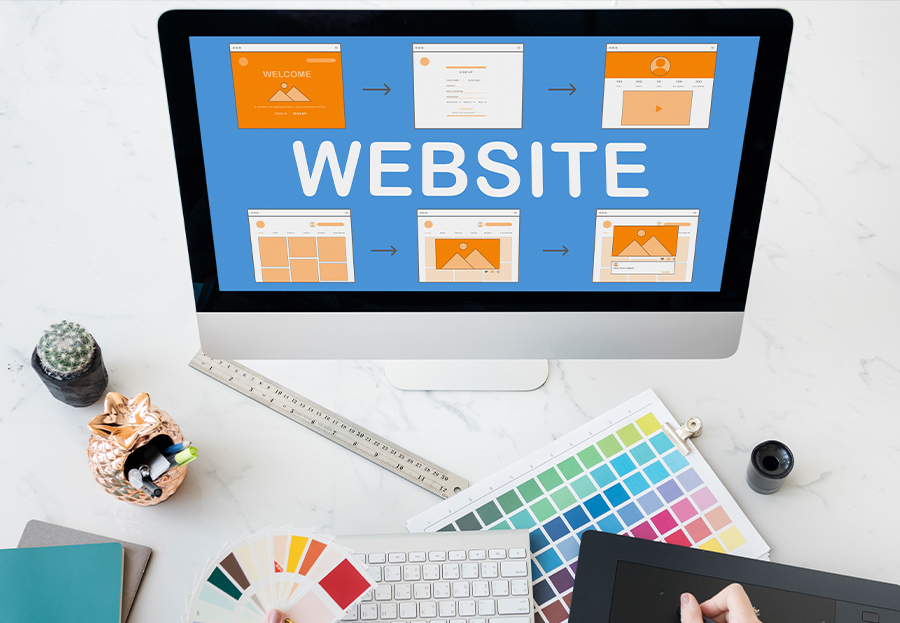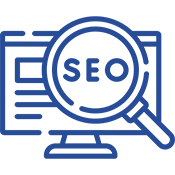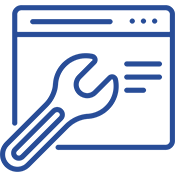1. Understanding the Importance of a Professional Web Design
In today’s highly digital world, your website is often the first point of contact potential customers have with your brand. It acts as the digital storefront of your business, reflecting your professionalism, values, and capabilities. A well-designed website builds trust, improves credibility, and enhances the user experience. Choosing the right web design service is not just a matter of aesthetics—it’s a strategic decision that can significantly influence your brand perception, lead conversion, and customer retention. A professional design company doesn't just deliver a visually appealing layout; it ensures your website is functional, optimized for search engines, mobile-friendly, and aligned with your business objectives. As competition in the digital space continues to grow, businesses cannot afford to cut corners when it comes to web design. Selecting the right service provider is crucial for long-term success, and that choice requires careful thought, research, and a solid understanding of your own needs.
2. Identifying Your Business Goals and Website Needs
Before you even begin the search for a web design service, it’s essential to define your business goals and understand what you need from your website. Are you an eCommerce store looking for an intuitive, conversion-focused design? Are you a service-based company that needs lead generation forms and clear call-to-actions? Or perhaps a portfolio-style site is what you're after to showcase work samples? Knowing the primary purpose of your website will help you communicate your vision more effectively to potential designers and allow them to offer tailored solutions. Additionally, consider the features you need—such as a content management system, booking integrations, user accounts, or multilingual support. Understanding your target audience and how they will interact with your site is equally important. This clarity will not only help narrow down suitable design agencies but also ensure the end product is aligned with both your user needs and business strategy.
3. Evaluating Experience and Portfolio of the Agency
A reliable indicator of a web design agency’s capabilities is its portfolio. Reviewing their past work helps you gauge their creative range, technical proficiency, and familiarity with businesses similar to yours. An experienced firm will often have a diverse portfolio showcasing projects across industries, each tailored to unique brand identities and customer goals. Look for case studies that go beyond just visuals—those that explain the challenges faced and the results achieved. Ask whether they’ve worked with businesses of your size or within your niche. Also, observe whether their design approach appears customized or if every website looks similar, which could indicate a lack of personalization. Experience isn’t solely about years in the industry; it's about how many successful projects they've delivered and whether those websites are still live and performing well. This level of scrutiny can reveal whether the agency can think strategically and execute effectively, which are both essential for your own web design success.
4. Assessing Technical Skills and Capabilities
An appealing design is just one part of a successful website; the backend must also be technically sound. The right web design service should have deep expertise in coding languages such as HTML5, CSS3, JavaScript, and PHP, along with a strong command of frameworks and content management systems like WordPress, Webflow, or Shopify. Responsive design skills are a must, given the growing number of mobile users. Additionally, their understanding of performance optimization, such as minimizing load times and enhancing page speed, is crucial for both SEO and user experience. Ask about their process for ensuring browser compatibility and accessibility compliance. Do they offer progressive enhancement? How do they handle third-party integrations like payment gateways, CRM systems, or email marketing platforms? If you need custom features or interactive components, make sure the agency is capable of building them from scratch. Technical proficiency ensures the site functions smoothly, stays secure, and is scalable for future growth, which is why it must be a key factor in your decision-making process.
5. Understanding Their Design Process and Timeline
Every web design agency follows a specific process, and understanding that workflow helps set your expectations and ensures both parties remain on the same page throughout the project. A professional firm will usually follow a structured process that includes discovery, planning, wireframing, design, development, testing, and launch. During the discovery phase, they should take the time to understand your business, your competitors, and your audience. The planning stage often includes creating a sitemap and defining user journeys, while wireframing gives you a glimpse of the site’s structure before the actual design begins. Once the visual components are finalized, the development team brings it all to life, followed by testing for bugs, compatibility issues, and responsiveness. Clarify the timeline at the beginning, including key milestones and approval stages. This prevents miscommunication and delays. A transparent, well-documented process with consistent updates will make you feel more involved and confident in the project’s direction.
6. Budget Considerations and Cost Transparency
Budget is one of the most influential factors in selecting a web design service. It’s important to have a clear idea of how much you’re willing to spend while remaining realistic about what quality work costs. A professional agency will offer detailed pricing with a breakdown of services included in each package, avoiding hidden costs or vague estimates. Be wary of agencies offering prices that seem too good to be true—these may come with limited customization, lackluster support, or inferior code quality. Understand whether you're being billed hourly or on a fixed project rate, and ask about potential additional charges for revisions, third-party tools, or ongoing maintenance. While it's tempting to go with the lowest bidder, remember that your website is a long-term investment. A quality design can increase your ROI significantly, while a poorly built site could cost you more in lost traffic, downtime, and redesigns. Value, not just price, should guide your final decision.
7. Customization vs. Templates: What’s Best for You?
When choosing a web design service, one of the decisions you’ll face is whether to opt for a fully custom website or a template-based solution. Each has its pros and cons, and the right choice depends on your business needs, budget, and timeline. Custom websites are built from scratch and tailored to your brand identity, audience behavior, and specific functionality requirements. They offer greater flexibility, scalability, and uniqueness but come at a higher cost and longer development time. On the other hand, template-based designs can be quicker and more affordable, especially for startups or small businesses with limited budgets. However, they may lack originality and could come with limitations in terms of customization and scalability. An experienced web design agency will help you weigh these options and choose the approach that aligns with your long-term goals. Regardless of the choice, ensure the final product doesn’t sacrifice performance, SEO, or user experience for the sake of convenience.
8. SEO and Digital Marketing Integration
Your website doesn’t operate in isolation—it’s a key part of your digital marketing ecosystem. Therefore, it’s essential to work with a web design service that understands and implements basic SEO best practices during the development process. This includes optimized URLs, proper header hierarchy, meta descriptions, image alt tags, and fast-loading pages. The design should support your content marketing strategy by making blogs, videos, and other media easy to navigate and consume. Mobile-friendliness and core web vitals are now ranking factors, so your design must cater to both users and search engines. Moreover, a good agency will also have experience integrating tools like Google Analytics, Search Console, email marketing platforms, and social media channels. They should understand how design impacts conversion rates, and be able to align CTAs, forms, and landing pages with your sales funnel. Choosing a design team with digital marketing know-how ensures your website isn’t just attractive—it performs and grows your business.
9. Post-Launch Support and Maintenance
Launching your website is not the end of the journey—it’s the beginning of continuous improvement. Websites require ongoing updates, security patches, content edits, and performance monitoring. Therefore, it’s vital to select a web design agency that offers reliable post-launch support. Some agencies include maintenance for a fixed period post-launch, while others offer monthly support packages. Clarify what is included in their support scope—will they monitor uptime, fix bugs, update plugins, and handle backups? How quickly can they respond to issues or change requests? A good agency will offer proactive support, including recommendations for improvements based on user data and feedback. Having a dependable team for ongoing maintenance saves time, reduces risk, and helps you focus on running your business while they keep your digital front door in top shape. The lack of proper support can lead to security vulnerabilities, outdated content, and a frustrating user experience that could turn potential customers away.
10. Checking Client Reviews and Testimonials
Customer feedback provides valuable insights into the reliability, professionalism, and overall quality of service offered by a web design agency. Browsing through testimonials on their website is a good start, but also seek out third-party reviews on platforms like Google, Clutch, or Trustpilot. Look for recurring themes in both positive and negative reviews. Are clients praising their communication and creativity? Do they mention responsiveness and timely delivery? On the other hand, are there complaints about missed deadlines, poor project management, or post-launch issues? Reach out to some of their past clients if possible and ask about their experience working with the agency. This direct feedback can reveal aspects of the collaboration that might not be obvious during sales pitches. A reputable agency will also be transparent about client results, possibly showcasing metrics like traffic growth, lead generation improvements, or conversion rate increases. Social proof adds a level of assurance and helps you feel confident in your decision.
11. Importance of Communication and Collaboration
One of the most underrated aspects of choosing a web design service is how well they communicate and collaborate with clients. Design is an iterative process that requires constant feedback, revisions, and mutual understanding. The agency should be receptive to your ideas while offering expert guidance to elevate your vision. Evaluate their communication style from the first interaction—are they responsive, clear, and willing to listen? Do they use project management tools like Trello, Asana, or Slack for better collaboration? Regular check-ins, milestone reviews, and transparent workflows contribute to a smoother project experience. You should feel like a partner in the process, not just a bystander. Strong communication also reduces misunderstandings and ensures the final product truly represents your brand. When designers and clients work together in harmony, the outcome is often a website that meets functional goals while exceeding creative expectations.
Final Thoughts: Making a Well-Informed Decision
Choosing the right web design service is a significant decision that can influence the future success of your business. It’s about more than just hiring someone to create a beautiful site—it’s about finding a partner who understands your vision, business objectives, and customer needs. From assessing portfolios and technical skills to evaluating communication and ongoing support, each step plays a role in helping you make a well-informed choice. Don’t rush the decision or base it solely on price. Take the time to research, ask questions, and trust your instincts. A great design team will act as an extension of your business, committed to helping you grow and succeed in the competitive digital world. With Innobuds, you gain a creative and strategic partner dedicated to building a website that not only looks stunning but also delivers measurable results, engages your audience, and supports your long-term growth.






 Web Designing
Web Designing Web Development
Web Development Web Hosting
Web Hosting Domain names
Domain names Search Engine Optimization
Search Engine Optimization Website Maintenance
Website Maintenance Graphic Designing
Graphic Designing Digital Marketing
Digital Marketing Branding
Branding Professional Eamil
Professional Eamil

